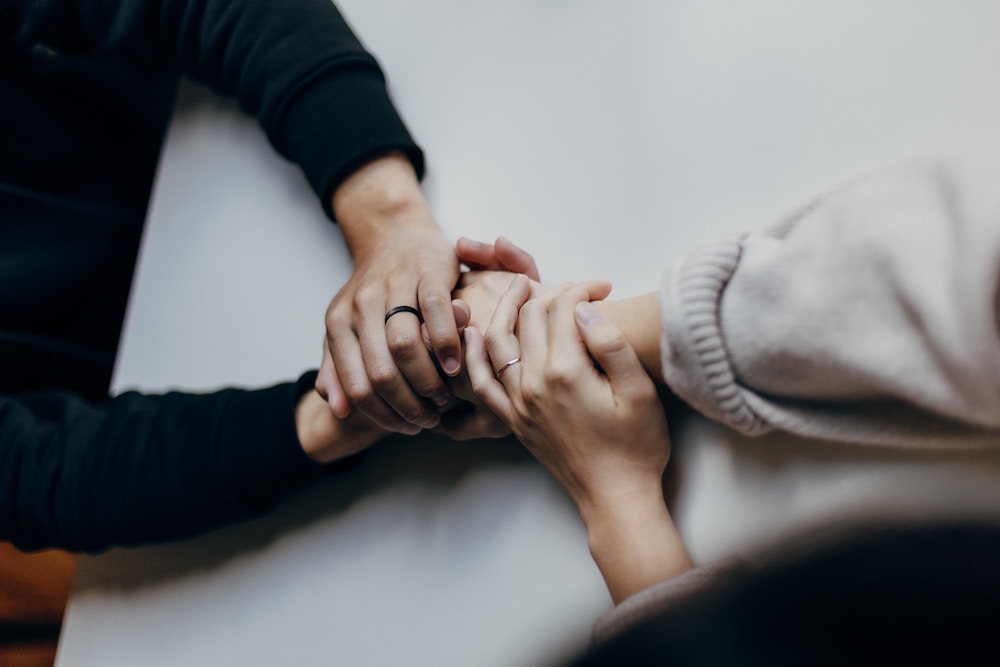We all need to get smart about the menopause

You might be surprised to hear that menopause affects everyone, whether they have ovaries or not. Think about it. If we aren’t feeling our best, it affects those around us whether they’re family, friends, colleagues or even just the people we meet on the street.
Menopausal symptoms can seriously impact how we feel and how we get through the day. Unsurprisingly, any woman experiencing symptoms is likely to be irritated if a husband, partner, colleague or kid grumpily asks, 'What's wrong with you?'. But, if the rest of the population doesn't know about menopause, how can they possibly be expected to understand?
It's a touchy subject. When I do talks about menopause, there's only one element that makes me nervous. It's not saying 'vagina' to a packed room - that always goes down well. Neither is it the HRT 'should we/shouldn't we take it?' section. No. The only time I've been actively challenged is when suggesting that everyone ought to be educated about menopause. But it’s something I passionately believe - the more we normalise it as a part of every woman's biology, the less it will be viewed as an embarrassing secret.
It goes without saying that all women need to know about menopause. Obviously. This, shockingly, is still not the case. We would also expect health professionals to understand the menopause, right? However, a 2021 survey revealed that 41% of UK medical schools don't have mandatory menopause education in the curriculum, which is horrifying and is one of the factors that has led to so much unnecessary prescription of antidepressants.
These two situations aren't yet rectified, but there's an awareness that there's work to be done. There are campaigns for women to be offered menopause information at their over-40s health check, as well as programmes, books, and countless social media accounts devoted to it. And, from 2024, new doctors will be required to complete mandatory women's health training, to include menopause.
But what about men? I have interviewed tens of men over the last four years of menopause-focused journalism and book writing. Firstly, their knowledge tends to be vague, and secondly, quite a few pointed out that if you suggest that your wife might be menopausal, you seriously take your life in your hands. This is - I think we can all agree - a fair point!
But menopause is definitely affecting our relationships. A 2020 survey by Avon showed that a quarter of women feel uncomfortable discussing menopause with their partners. I'd say it's far higher than that.
In 2021, the Office of National Statistics revealed that the majority of divorces of opposite-sex couples were petitioned by the wife (63.1%). Incredibly, this has been the case since 1949. In addition, most divorces happen in our mid-forties.
It's clearly more nuanced than 'menopause causes relationship breakdown', but many women to whom I've spoken have said that they didn't feel understood by their partners. This includes same-sex relationships; the nature of menopause is unique to each woman.
When it comes to work, our younger and our male colleagues absolutely need to know about menopause, again, just as a fact of life. There's a welcome sea change here, as companies are recognising that women might need a bit of support during this time. With the right education - via seminars, talks or even legislation - we'll see less eye-rolling and less 'Oh, she's going through the change'.
This doesn’t just make sense for women, it’s good business sense. Don't forget there's a brain drain of highly successful women around this time. It's estimated that 1 in 10 women have left their jobs due to menopause symptoms. Then there are our children. Again, rather than simply thinking their mothers are grumpy all the time - which many of us, with busy lives, can be - why shouldn't they be taught how changing hormones can affect us?
This is a subject that people get very het up about, especially in online comment sections: 'It's disgusting, poor kids shouldn't have to know about women's problems', etc but, again, it’s about simple education. Changing hormones will, one day, directly or indirectly, affect them.
In September 2020, menopause was finally added to the national curriculum. But it appears that this is mostly a sort of wincing afterthought via PHSE classes. It needs to be properly taught as part of biology, so that kids understand the science and know it's as significant as puberty and pregnancy.
My kids obviously know about menopause because it's pretty much all I write about. Say the word, and they wince or yawn ostentatiously. 'Ugh, not menopause AGAIN.' But the sooner it's a normalised topic for everyone, the better it will be for us all, no matter what our age, stage of life or gender.

Stay up to date with the latest menopause news by signing up to our mailing list
Newsletter Sign-up (popup)
Stay up to date with the latest menopause news